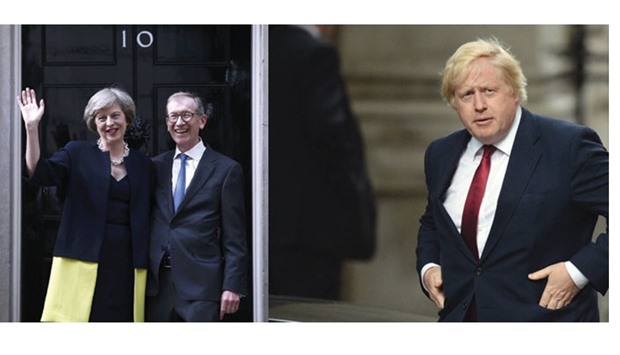Theresa May, who took over as Britain’s new prime minister yesterday charged with pulling the country out of the EU, caused surprise by immediately appointing leading Brexit campaigner Boris Johnson as foreign minister.
May replaced David Cameron as Conservative leader after he stood down following the seismic vote to leave the European Union on June 23, which sparked three weeks of intense political turmoil and volatility on financial markets.
May, who had supported Britain’s continued EU membership, moved quickly to heal divisions sparked by the referendum by appointing leading “Leave” campaigner Johnson to a senior cabinet post.
The decision to name Johnson, the eccentric former mayor of London, to the high-profile post of foreign secretary is likely to cause controversy.
Johnson led the Brexit camp to victory, antagonising many EU leaders in the process, but dismayed many of his supporters by pulling out of the race to succeed Cameron at the last minute.
In another key appointment, May named former foreign minister Philip Hammond as her new finance minister, with the job of calming fears over the economic fall-out of leaving Britain’s biggest market.
She named former Europe minister David Davis, another “Leave” campaigner, as the minister charged with implementing Britain’s exit.
In other cabinet appointments announced, Michael Fallon will stay on as defence minister, and former energy minister Amber Rudd replaces May at the interior.
Cables of congratulations
HH the Emir Sheikh Tamim bin Hamad al-Thani, HH the Deputy Emir Sheikh Abdullah bin Hamad al-Thani and HE the Prime Minister and Minister of Interior Sheikh Abdullah bin Nasser bin Khalifa al-Thani yesterday sent cables of congratulations to Theresa May on the occasion of assuming the post of prime minister of the United Kingdom.

Britain’s new Prime Minister, Theresa May, and husband Philip posing for the media outside number 10 Downing Street, in central London, yesterday. (Right) Boris Johnson: named to the high-profile post of foreign minister.
